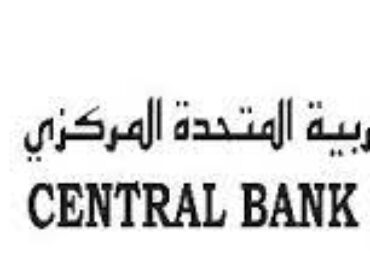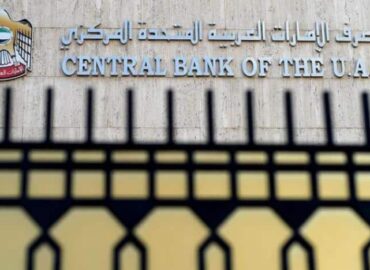
Central Bank of the UAE
The Central Bank of the United Arab Emirates (CBUAE) is the main regulatory body for the country’s banking sector. Established in 1980, the CBUAE is responsible for setting monetary policy, issuing and regulating the use of national currency, and overseeing the operations of banks and other financial institutions operating in the UAE.
One of the main functions of the CBUAE is to ensure the stability of the financial system in the UAE. To do this, the CBUAE sets policies and regulations for the banking sector, monitors the financial health of banks and other financial institutions, and takes action to address any potential risks or issues. The CBUAE also works to promote financial literacy and awareness among consumers, and provides resources and support to help individuals and businesses manage their finances effectively.
In addition to its regulatory functions, the CBUAE also plays an important role in promoting economic development in the UAE. The CBUAE works with government agencies and other stakeholders to support the growth and diversification of the country’s economy, and to create a favorable environment for investment and business growth.
Throughout its history, the CBUAE has achieved a number of significant milestones and accomplishments. Some notable achievements of the CBUAE include:
- Issuing and regulating the use of the UAE dirham, the national currency of the UAE
- Promoting financial stability and stability in the banking sector
- Supporting economic development and diversification in the UAE
- Encouraging the growth and development of the country’s financial sector
- Promoting financial literacy and awareness among consumers
Today, the CBUAE is widely respected as a leading regulatory body in the Middle East, and plays a vital role in the economic development and stability of the UAE.
FAQs
What type of banks avilable in uae?
The Central Bank of the United Arab Emirates (CBUAE) is the main regulatory body for the country's banking sector. It oversees the operations of a variety of different types of banks operating in the UAE, including:
Commercial banks: These banks offer a range of financial services to individuals and businesses, including checking and savings accounts, loans, and credit cards.
Investment banks: These banks focus on providing financial services to businesses, such as underwriting securities, providing financial advice, and managing mergers and acquisitions.
Islamic banks: These banks offer financial services that are compliant with Islamic law, which prohibits the charging of interest on loans.
Digital banks: These banks offer financial services through online and mobile platforms, often with lower fees and higher interest rates on savings accounts.
The CBUAE is responsible for issuing licenses to banks and other financial institutions, and monitoring their compliance with regulations to ensure the safety and stability of the banking system in the UAE.
source: ChatGpt
What are type of loan on offer in uae?
Banks in the United Arab Emirates (UAE) offer a range of loan products to individuals and businesses. Some of the types of loans that may be available in the UAE include:
Personal loans: These loans are designed for individuals and are typically used for personal expenses such as home renovations, education, or travel. Personal loans may be unsecured, meaning they do not require collateral, or secured, meaning they are backed by collateral such as a car or property.
Mortgage loans: These loans are used to finance the purchase of a home or property. Mortgage loans may be offered by banks, mortgage brokers, or other financial institutions.
Business loans: These loans are designed for businesses and are used to finance a range of business expenses, including equipment purchases, expansion, or working capital. Business loans may be secured or unsecured, and may be offered by banks, alternative lenders, or other financial institutions.
Auto loans: These loans are used to finance the purchase of a new or used vehicle. Auto loans may be offered by banks, credit unions, or other financial institutions.
Student loans: These loans are designed to help students finance their education. Student loans may be offered by banks, credit unions, or other financial institutions, and may be secured or unsecured.
It is important to carefully consider the terms and conditions of any loan before borrowing, including the interest rate, repayment period, and any fees or charges that may apply.
Source: ChatGpt
How to make a complaint about any bank in UAE?
If you have a complaint about a bank in the United Arab Emirates (UAE), there are several steps you can take to try to resolve the issue:
Contact the bank directly: Many banks have a customer service department that can be contacted to address complaints or concerns. You can try calling the bank's customer service line, or visiting a branch in person to speak with a representative.
Use the bank's online complaint system: Many banks have an online system in place for submitting complaints. This may be in the form of a web form that you can fill out and submit online, or an email address that you can use to send your complaint.
Contact the Central Bank of the UAE: If you are unable to resolve your complaint with the bank directly, you can file a complaint with the Central Bank of the UAE. The Central Bank is responsible for regulating the banking sector in the UAE, and may be able to help you resolve your complaint.
Seek legal assistance: If you are unable to resolve your complaint through any of the above methods, you may wish to seek legal assistance. A lawyer may be able to help you understand your rights and options for pursuing a resolution to your complaint.
It is important to keep in mind that the process for making a complaint about a bank in the UAE may vary depending on the specific bank and the nature of your complaint. It is always a good idea to keep a record of your interactions with the bank and any documentation related to your complaint, as this may be helpful in resolving the issue.
Source: ChatGpt



